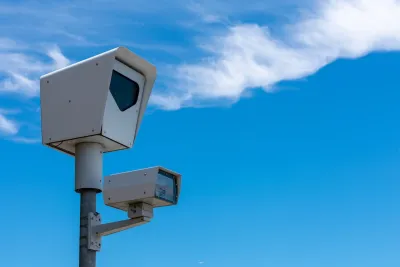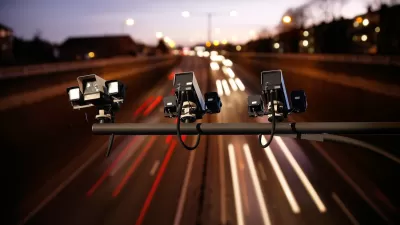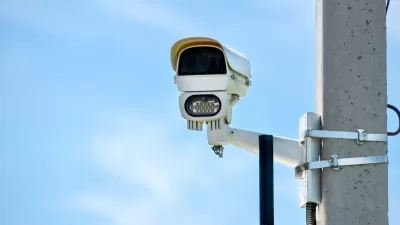Countering claims made by the Chicago Tribune that automated enforcement doesn’t improve safety, Streetsblog Chicago lays out the data showing how traffic safety fared in camera zones.

Automated traffic enforcement cameras are not a steady, permanent source of revenue for cities — nor should they be, argues John Greenfield in Streetsblog Chicago.
Addressing claims that speed cameras are simply a cash grab for the city, Greenfield notes that “These installations shouldn't be expected to produce a steady stream of ticket money that never declines. Instead, the number of fines issued by a particular camera should get smaller, as more motorists realize that if they drive dangerously near them, they'll have to pay a price.”
In a perfect world, the cameras would eventually issue zero tickets, because motorists would learn not to speed by more than 5 mph in their presence.
To ensure speeding tickets don’t amount to a regressive tax, Greenfield writes that the city could reinstate its prior policy of discounting speeding tickets for low-income residents.
When it comes to safety, claims that cameras don’t help seem to be unfounded. A Chicago study found that “Between 2012-2013 and 2022-2023, while the total number of crashes rose by 28 percent citywide, it only increased by 2 percent near the speed cameras.” At the same time, injuries and fatalities fell by 11 percent near cameras. Bicycle and pedestrian collisions dropped by a dramatic 46 percent near cameras.
Ultimately, Greenfield asks, “Is it really such a virulent imposition on motorists to ask them not to drive at speeds that can easily kill other road users, or themselves?”

Maui's Vacation Rental Debate Turns Ugly
Verbal attacks, misinformation campaigns and fistfights plague a high-stakes debate to convert thousands of vacation rentals into long-term housing.

Planetizen Federal Action Tracker
A weekly monitor of how Trump’s orders and actions are impacting planners and planning in America.

San Francisco Suspends Traffic Calming Amidst Record Deaths
Citing “a challenging fiscal landscape,” the city will cease the program on the heels of 42 traffic deaths, including 24 pedestrians.

Adaptive Reuse Will Create Housing in a Suburban Texas Strip Mall
A developer is reimagining a strip mall property as a mixed-use complex with housing and retail.

Study: Anti-Homelessness Laws Don’t Work
Research shows that punitive measures that criminalized unhoused people don’t help reduce homelessness.

In U.S., Urban Gondolas Face Uphill Battle
Cities in Latin America and Europe have embraced aerial transitways — AKA gondolas — as sustainable, convenient urban transport, especially in tricky geographies. American cities have yet to catch up.
Urban Design for Planners 1: Software Tools
This six-course series explores essential urban design concepts using open source software and equips planners with the tools they need to participate fully in the urban design process.
Planning for Universal Design
Learn the tools for implementing Universal Design in planning regulations.
Heyer Gruel & Associates PA
JM Goldson LLC
Custer County Colorado
City of Camden Redevelopment Agency
City of Astoria
Transportation Research & Education Center (TREC) at Portland State University
Jefferson Parish Government
Camden Redevelopment Agency
City of Claremont





























